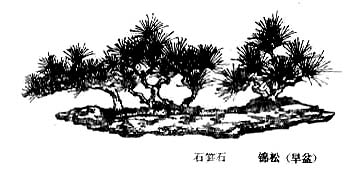Lun Yu 
 – Les Entretiens de Confucius
– Les Entretiens de Confucius
Le Maître échange propos, anecdotes, brèves paraboles et maximes avec ses disciples. Tr. Couvreur (fr), Legge (en) et Lau (en).
Lunyu VIII. 4. (192)
Tseng tzeu mourant reçut la visite de Meng King tzeu1. Prenant la parole, il lui dit : « L'oiseau qui va mourir crie d'une voix plaintive ; quand un homme va mourir ses paroles sont authentiques. Un homme honorable a surtout soin de trois choses : éviter la violence et l'insolence dans ses attitudes et dans ses gestes, garder une expression qui inspire confiance, prendre un ton dénué de vulgarité et de bassesse. Pour ce qui est des vases rituels de bambou ou de bois, il y a des officiers pour en prendre soin. »
Couvreur VIII.4.
The philosopher Tsang's dying counsels to a man of high rank.
1. The philosopher Tsang being ill, Meng Chang went to ask how he was.
2. Tsang said to him, "When a bird is about to die, its notes are mournful; when a man is about to die, his words are good.
3. "There are three principles of conduct which the man of high rank should consider specially important:– that in his deportment and manner he keep from violence and heedlessness; that in regulating his countenance he keep near to sincerity; and that in his words and tones he keep far from lowness and impropriety. As to such matters as attending to the sacrificial vessels, there are the proper officers for them."
Legge VIII.4.
Tseng Tzu was seriously ill. When Meng Ching Tzu visited him, this was what Tseng Tzu said,
'Sad is the cry of a dying bird;
Good are the words of a dying man. There are three things which the gentleman values most in the Way: to stay clear of violence by putting on a serious countenance, to come close to being trusted by setting a proper expression on his face, and to avoid being boorish and unreasonable by speaking in proper tones. As for the business of sacrificial vessels, there are officials responsible for that.'
Lau [8:4]
b. Zeng-zi berkata, "Burung yang akan mati terdengar sedih suaranya ; sedang orang yang akan mati, baik kata-katanya".
c. Seorang Junzi menjunjung tiga syarat hidup di dalam Jalan Suci. Di dalam sikap dan lakunya, ia menjauhkan sikap congkak dan angkuh ; pada wajahnya selalu menunjukkan sikap Dapat Dipercaya dan di dalam percakapannya selalu ramah tamah serta menjauhi kata-kata kasar."
d. "Mengenai alat perlengkapan upacara sembahyang tidak perlu engkau turut campur, karena sudah ada yang mengurus."
b. Zeng-zi berkata, "Burung yang akan mati terdengar sedih suaranya ; sedang orang yang akan mati, baik kata-katanya."
c. "Seorang Junzi menjunjung tiga syarat hidup di dalam Jalan Suci. Di dalam sikap dan lakunya, ia menjauhkan sikap congkak dan angkuh ; pada wajahnya selalu menunjukkan sikap Dapat Dipercaya dan di dalam percakapannya selalu ramah tamah serta menjauhi kata-kata yang kasar".

Les Entretiens de Confucius – Lun Yu VIII. 4. (192) – Chinois off/on – Français/English
Alias the Lunyu, the Lun Yü, the Analects, les Entretiens du maître avec ses disciples.
Le Canon des Poèmes, Les Entretiens, La Grande Étude, Le Juste Milieu, Les Trois Caractères, Le Livre des Mutations, De la Voie et la Vertu, 300 poèmes Tang, L'Art de la guerre, Trente-six stratagèmes
Bienvenue, aide, notes, introduction, table.
Index – Contact – Haut de page























